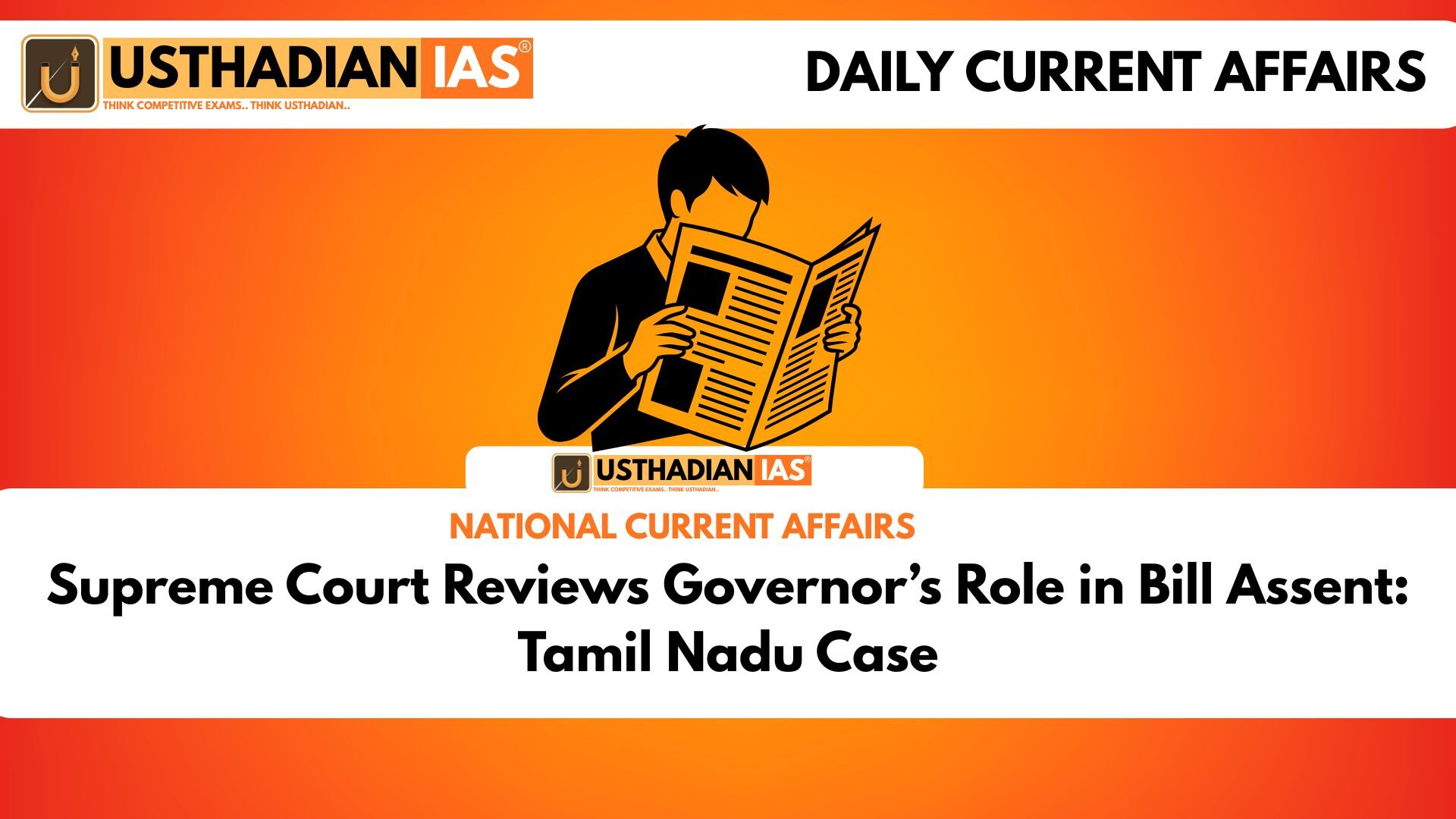Legal Clash over Legislative Assent
Supreme Court Reviews Governor’s Role in Bill Assent: Tamil Nadu Case: A constitutional debate is unfolding in the Supreme Court of India, as it evaluates the powers of State Governors in the legislative process, particularly their role in granting assent to state Bills. This follows a petition by the Tamil Nadu government, which claims that Governor RN Ravi delayed acting on several Bills, thereby undermining the state’s democratic processes. The case sheds light on the long-standing tension between elected state governments and centrally appointed Governors.
The Debate over Article 200
At the heart of the dispute is Article 200 of the Indian Constitution, which deals with a Governor’s actions on Bills passed by the state legislature. It gives the Governor three choices: grant assent, withhold assent, or reserve the Bill for the President. If a Bill is returned and re-passed, the Governor is constitutionally required to assent, unless it involves judicial powers or constitutional violations. However, no timeframe is defined in Article 200, leading to what’s being described as a “pocket veto”—delaying assent indefinitely without formal rejection.
Recent Tensions in Tamil Nadu
Since September 2021, when RN Ravi became Tamil Nadu’s Governor, friction has increased. The state approached the Supreme Court in November 2023, highlighting that multiple Bills remained pending since early 2023. These include crucial reforms related to education, social welfare, and state governance. The Supreme Court, in its oral remarks, warned that Governors are not elected representatives and should respect the legislative process by avoiding undue delays.
Legal Questions Under Review
The Court is examining several critical issues:
- Can the Governor refuse assent after a Bill has been re-passed by the Assembly?
- Is the power to refer Bills to the President bound by constitutional limits?
- Does indefinite delay violate the spirit of democracy?
- Should a specific time limit be set for Governors to act on Bills?
These questions could lead to a landmark ruling that shapes the balance of power between states and the Centre.
Governor’s Constitutional Position
The Governor is the highest constitutional authority in a State, acting as both a nominal head and a Central government representative. While the Governor has executive, legislative, financial, and judicial powers, these are generally exercised based on the advice of the Council of Ministers. The only exceptions arise in matters like recommending President’s Rule or referring certain Bills to the President.
Powers and Responsibilities of the Governor
Executive Powers: Includes appointment of the Chief Minister, Advocate General, State Election Commissioner, and members of the State Public Service Commission. The Governor can also recommend President’s Rule and act as Chancellor of State Universities.
Legislative Powers: The Governor can summon, prorogue, and dissolve the Legislature. They can nominate members, address sessions, return Bills (except Money Bills), and issue Ordinances when the Assembly is not in session.
Financial Powers: Manages the State Budget process, approves Money Bills, and authorizes spending from the Contingency Fund. Also forms a State Finance Commission every five years.
Judicial Powers: Can pardon or commute sentences for state crimes, and is consulted in High Court judicial appointments.
Static GK Snapshot
| Topic | Detail |
| Constitutional Article | Article 200 – Governor’s options on State Bills |
| Case in Focus | Tamil Nadu vs Governor RN Ravi |
| Main Legal Issue | Delay in assent to State Legislature Bills |
| Court Involved | Supreme Court of India |
| Powers Under Review | Legislative powers of Governor |
| Key Term | Pocket Veto – indefinite delay of Bill assent |
| State’s Argument | Delays violate democratic process |
| Governor’s Constitutional Role | Nominal Head of State; acts on Ministerial advice |
| Related Articles | Article 163 (Council of Ministers), Article 201 (Reservation for President) |
| Possible Impact | Clarity on Governor’s limits, timeline for assent, federal balance |








